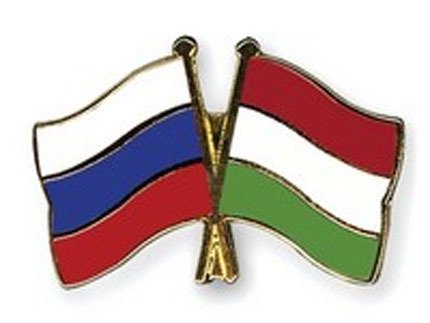The Russian Community In Hungary – The Past
Life of the Russian community in Hungary is steeped in history. Unfortunately, to a lot of people the end of the Second World War has marked the beginning of an equally painful period. Soviet Russia forced Hungary to go through all the nine circles of hell fighting for its independence. Grievously, there is nothing Russian people can do to ease the pain, which has been rooted in the past. However, this story will try to focus on the blissful moments of the history between the two nations.
In 1799, Grand Duchess Alexandra Pavlovna, who was the eldest daughter of Tsar Paul I of Russia married Archduke Joseph of Austria. Right after the ceremony young couple moved to Hungary. Archduke Joseph was governing Hungarian part of the empire and his wife was given an honorable title of “Palatine d’Hongrie”. In the letters to her father Grand Duchess always wrote that Hungarian people have welcomed her with open hearts; she was smitten by the delicate beauty of the Hungarian women and quite modesty of the Hungarian men. The Palatine was so proud to become a part of the Austro-Hungarian Empire. She was taking long walks gazing into the emerald-green landscapes, intrigued by the serenity of the local architecture. In the eighteenth century Russian philanthropist, Grigory Skovoroda, has visited Hungary and was instantly impressed by the vibrant taste of the Hungarian Tokaj wines. After that, for almost sixty-five years Tokaj region has become the supplier of wine to the Russian Royal family.
One century and One World War later Hungary has become a home for over 5000 of the Russian immigrants. Immediately after the First World War almost 600 refuges lived around the area of Esztergom.
One of the leading professors from the Kaposvar University, Attila Kolontari, has presented absolutely unique information: already back in 1921 the very first Russian immigrant community/organization was found in Hungary, called “Russian Officers in the Kingdom of Hungary”. Unfortunately, there is not much information left after the WWII about further transformations of the Russian diaspora.
In 2014, the relationship between the Russian immigrants and the Hungarian population is an absolute antithesis of the stereotypical post-war behavior. Even though there is no way to change some of the darkest past, young generations see the peace as a symbol of the new-world’s ascendency over the creations of the old.
Written by Egorova Ekaterina
Photo: www.168ora.hu
Source: http://dailynewshungary.com/
please make a donation here
Hot news
What happened today in Hungary – 26 July, 2024
Drama: number of births in a 20-year low in Hungary
Yay or nay? – 6 odd Hungarian delicacies that make our skin crawl
Budapest tourism “exploded” this past weekend
Container transport in Budapest may stop: How will this affect Hungarian economy?
Minister: Hungary will protect its territory by every means possible




